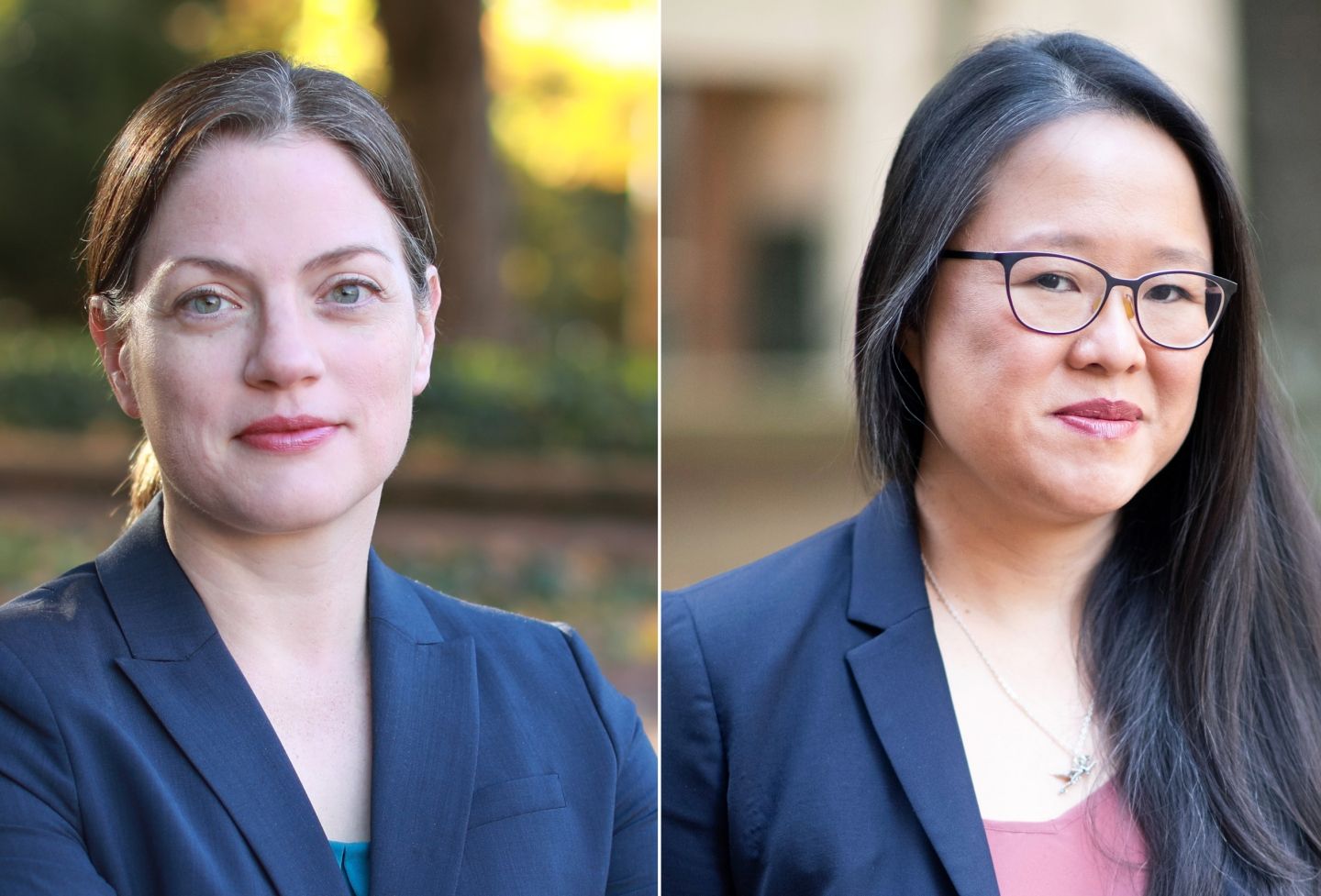The world champion U.S. women’s soccer team has turned to the courts — as well as the court of public opinion — in their fight for equity in pay and working conditions. Their efforts, and those of women athletes around the world, may hold broader lessons for achieving gender equity, a topic explored on the latest episode of “Common Law,” a podcast of the University of Virginia School of Law.
In the episode, UVA Law professor Camilo Sánchez, who directs the school’s International Human Rights Clinic, and clinic student Jolena Zabel ’21 discuss what they learned in co-authoring a report on the topic, “Gender Discrimination in Football: Building a Toolbox Toward Gender Equity in the Beautiful Game.”
Written in coordination with Dejusticia, which has a focus on human rights in Colombia and the Global South, the report has been released as a book in English and Spanish.
Sánchez, who also directs the school’s Human Rights Program and Center for International & Comparative Law, says on the show that looking at human rights through the lens of soccer is “an opportunity to bring the human rights conversation into the daily life.”
Regarding the problem of equal pay for women in general, “When you have these huge disparities that affect half of the world’s population, that’s something in which law and justice need to be involved,” he adds.
Following the U.S. women’s soccer team victory in the 2019 World Cup — their fourth win since the competition started in 1991 — the players sued, arguing they were paid inequitably compared to the men’s team, which has never won a World Cup. They asked for more than $66 million in damages under the Equal Pay Act and Title VII of the Civil Rights Act of 1964.
Though a judge initially dismissed the equal pay claims, saying that the women had negotiated a different kind of contract than the men and could not now demand parity, the women’s team signaled last month they would appeal the decision.
Both sides recently came to an agreement on working conditions, however, so the women will now have comparable travel budgets, support staff and field conditions.
The disparities exist beyond the U.S. women’s team, Sánchez and Zabel point out. The Women’s World Cup prize will be $60 million in 2023, whereas the men’s next cup award, in 2022, will be $440 million. Female players around the world are paid much less than players in the United States, and some even have to pay to train or use facilities, Sánchez explains on the show.
Additionally, “there is a chauvinist culture that makes women vulnerable to a lot of abuses, including sexual harassment and sexual abuse,” Sánchez says.
The pair also discuss the role of FIFA, the international governing body of football, and its role in enforcing arbitration to settle disputes.
Zabel says she saw signs of progress in Europe, where there’s been a movement to require having a women’s team if there’s a Premier League men’s team.
“And so we’re seeing a lot of the best women’s U.S. players actually now joining clubs that you'll recognize — Manchester United, things like that,” Zabel says.
Megan Rapinoe, the U.S. women’s team star, has the best-selling soccer jersey in the United States.
“I think, long term, that also is an important tool to continue to show that people care about this and there’s a market,” she says. “Sport, like other things we consume as a society for entertainment, tells us something about ourselves and our society.”
Hosted by Dean Risa Goluboff and Vice Dean Leslie Kendrick ’06, “Common Law” is focusing this season on “Law and Equity.”
While the themes of the first two seasons were temporal — the first focused on “The Future of Law” and the second looked back at “When Law Changed the World” — this season looks across time at a variety of legal issues, asking what equity means and examining how it interacts with law.
“Common Law” is available on Apple Podcasts, Stitcher, YouTube, Spotify and other popular places you can listen to podcasts. The show is produced by Emily Richardson-Lorente.
You can follow the show on the website CommonLawPodcast.com or Twitter at @CommonLawUVA.
Founded in 1819, the University of Virginia School of Law is the second-oldest continuously operating law school in the nation. Consistently ranked among the top law schools, Virginia is a world-renowned training ground for distinguished lawyers and public servants, instilling in them a commitment to leadership, integrity and community service.


